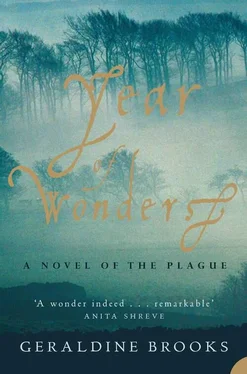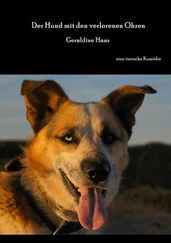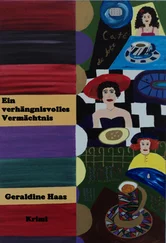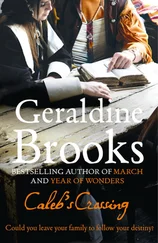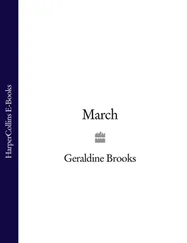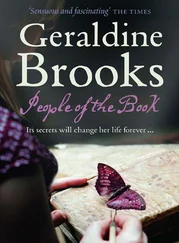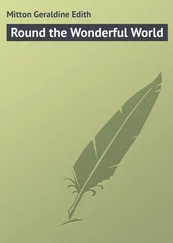At day’s end, when I leave the rectory for home, I prefer to walk through the orchard on the hill rather than go by the road and risk meeting people. After all we’ve been through together, it’s just not possible to pass with a polite, ‘Good night t’ye.’ And yet I haven’t the strength for more. Sometimes, not often, the orchard can bring back better times to me. These memories of happiness are fleeting things, reflections in a stream, glimpsed all broken for a second and then swept away in the current of grief that is our life now. I can’t say that I ever feel what it felt like then, when I was happy. But sometimes something will touch the place where that feeling was, a touch as slight and swift as the brush of a moth’s wing in the dark.
In the orchard of a summer night, if I close my eyes, I can hear the small voices of children: whispers and laughter, running feet and rustling leaves. Come this time of year, it’s Sam that I think of – strong Sam Frith grabbing me around the waist and lifting me into the low, curved branch of a gnarly, old tree. I was just fifteen. ‘Marry me,’ he said. And why wouldn’t I? My father’s croft had ever been a joyless place. My father loved a pot better than he loved his children, though he kept on getting them, year passing year. To my stepmother, Aphra, I was always a pair of hands before I was a person, someone to toil after her babies. Yet it was she who spoke up for me, and it was her words that swayed my father to give his assent. In his eyes I was but a child still, too young to be handfasted. ‘Open your eyes, husband, and look at her,’ said Aphra. ‘You’re the only man in the village who doesn’t. Better she be wedded early to Frith than bedded untimely by some youth with a prick more upright than his morals.’
Sam Frith was a miner with his own good lead seam to work. He had a fine small cottage and no children from a first wife who’d died. It did not take him long to give me children. Two sons in three years. Three good years. I should say, for there are many now too young to remember it, that it was not a time when we were raised up thinking to be happy. The Puritans, who are few amongst us now, and sorely pressed, had the running of this village then. It was their sermons we grew up listening to in a church bare of adornment, their notions of what was heathenish that hushed the Sabbath and quieted the church bells, that took the ale from the tavern and the lace from the dresses, the ribands from the Maypole and the laughter out of the public lanes. So the happiness I got from my sons, and from the life that Sam provided, burst on me as sudden as the first spring thaw. When it all turned to hardship and bleakness again, I was not surprised. I went calmly to the door that terrible night with the torches smoking and the voices yelling and the men with their faces all black so that they looked headless in the dark. The orchard can bring back that night, too, if I let my mind linger there. I stood in the doorway with the baby in my arms, watching the torches bobbing and weaving crazy lines of light through the trees. ‘Walk slow,’ I whispered. ‘Walk slow, because it won’t be true until I hear the words.’ And they did walk slow, trudging up that little hill as if it were a mountain. But slow as they came, in the end they arrived, jostling and shuffling. They pushed the biggest one, Sam’s friend, out in front. There was a mush of rotten apple on his boot. Funny thing to notice, but I suppose I was looking down so that I wouldn’t have to look into his face.
They were four days digging out Sam’s body. They took it straight to the sexton’s instead of bringing it home to me. They tried to keep me from it, but I wouldn’t be kept. I would do that last thing for him. She knew. ‘Tell them to let her go to him,’ Elinor Mompellion said to the rector in that gentle voice of hers. Once she spoke, it was over. She so rarely asked anything of him. And once Michael Mompellion nodded, they parted, those big men, moving aside and letting me through.
To be sure, there wasn’t much there that was him. But what there was, I tended. That was two years ago. Since then, I’ve tended so many bodies, people I loved and people I barely knew. But Sam’s was the first. I bathed him with the soap he liked, because he said it smelled of the children. Poor slow Sam. He never quite realized that it was the children who smelled of the soap. I washed them in it every night before he came home. I made it with heather blooms, a much gentler soap than the one I made for him. His soap was almost all grit and lye. It had to be, to scrape that paste of sweat and soil from his skin. He would bury his poor tired face in the babies’ hair and breathe the fresh scent of them. It was the closest he got to the airy hillsides. Down in the mine at daybreak, out again after sundown. A life in the dark. And a death there, too.
And now it is Elinor Mompellion’s Michael who sits all day in the dark, with the shutters closed. And I try to serve him, although sometimes I feel that I’m tending just another in that long procession of dead. But I do it. I do it for her. I tell myself I do it for her. Why else would I do it, after all?
I open the door to my cottage these evenings on a silence so thick it falls upon me like a blanket. Of all the lonely moments of my day, this one is always the loneliest. I confess I have sometimes been reduced to muttering my thoughts aloud like a madwoman when the need for a human voice becomes too strong. I mislike this, for I fear the line between myself and madness is as fine these days as a cobweb, and I have seen what it means when a soul crosses over into that dim and wretched place. But I, who always prided myself on grace, now allow myself a deliberate clumsiness. I let my feet land heavily. I clatter the hearth tools. And when I draw water, I let the bucket chain grind on the stone, just to hear ragged noise instead of the smothering silence.
When I have a tallow stub, I read until it gutters. Mrs. Mompellion always allowed me to take the stubs from the rectory, and although there are very few nowadays, I do not know how I would manage without. For the hour in which I am able to lose myself in someone else’s thoughts is the greatest relief I can find from the burden of my own memories. The volumes, too, I bring from the rectory, as Mrs. Mompellion bade me borrow any book I chose. When the light is gone, the nights are long, for I sleep badly, my arms reaching in slumber for my babies’ small, warm bodies, jolting suddenly wakeful when I do not find them.
Mornings are generally much kinder to me than evenings, full as they are of birds’ songs and fowls’ clucking and the ordinary promise that comes with any sunrise. I keep a cow now, a boon that I was not in purse to have in the days when Jamie or Tom could have benefited from the milk. I found her last winter, wandering gaunt in the middle of the road, her hide draped loose upon her bony nethers. Her big eyes looked at me with such a vacant, hopeless stare that I felt I was gazing into a mirror. My neighbours’ cottage was empty, the ivy already creeping across the windows and the grey lichens crusting the sills. So I drove her inside and fitted it up as her boose, fattening her through the cold months with their oats – abundant food of which the dead had no need. She had her calf alone there, without complaint. By the time I found him I guess he had been born two hours, his back and sides dried out but still wet behind the ears. I helped him get his first drink, putting my fingers in his mouth and squirting her teat between them onto his slippery tongue. In return, the next night I stole a bit of her rich, yellow birth milk to make a beastings pie, baked with egg and sugar, and took it to Mr. Mompellion, rejoicing when he ate it as if he were my child, thinking how Elinor would be glad of it. The little bull calf is sleek now, and his mother’s brown eyes regard me with a kindly patience. I love to lean my head against her warm flank and breathe the scent of her hide as the steaming milk foams into my bucket. I carry it to the rectory to make a posset or churn sweet butter or skim the cream to serve with a dish of blackberries – whatever I think will best tempt Mr. Mompellion. When I have enough in the pail for our small needs, I turn her out to graze. She has fattened so since last winter that every day now I fear she will lodge halfway through the doorway.
Читать дальше
